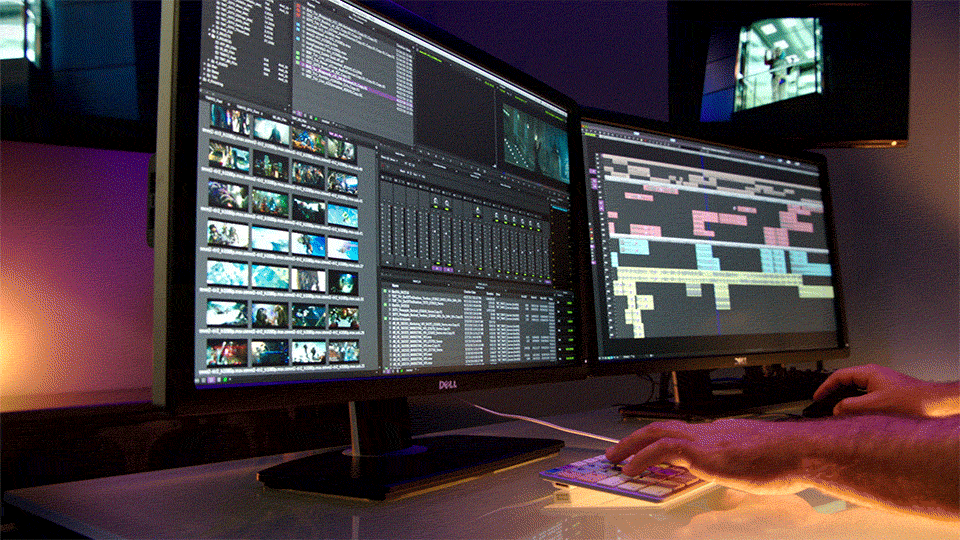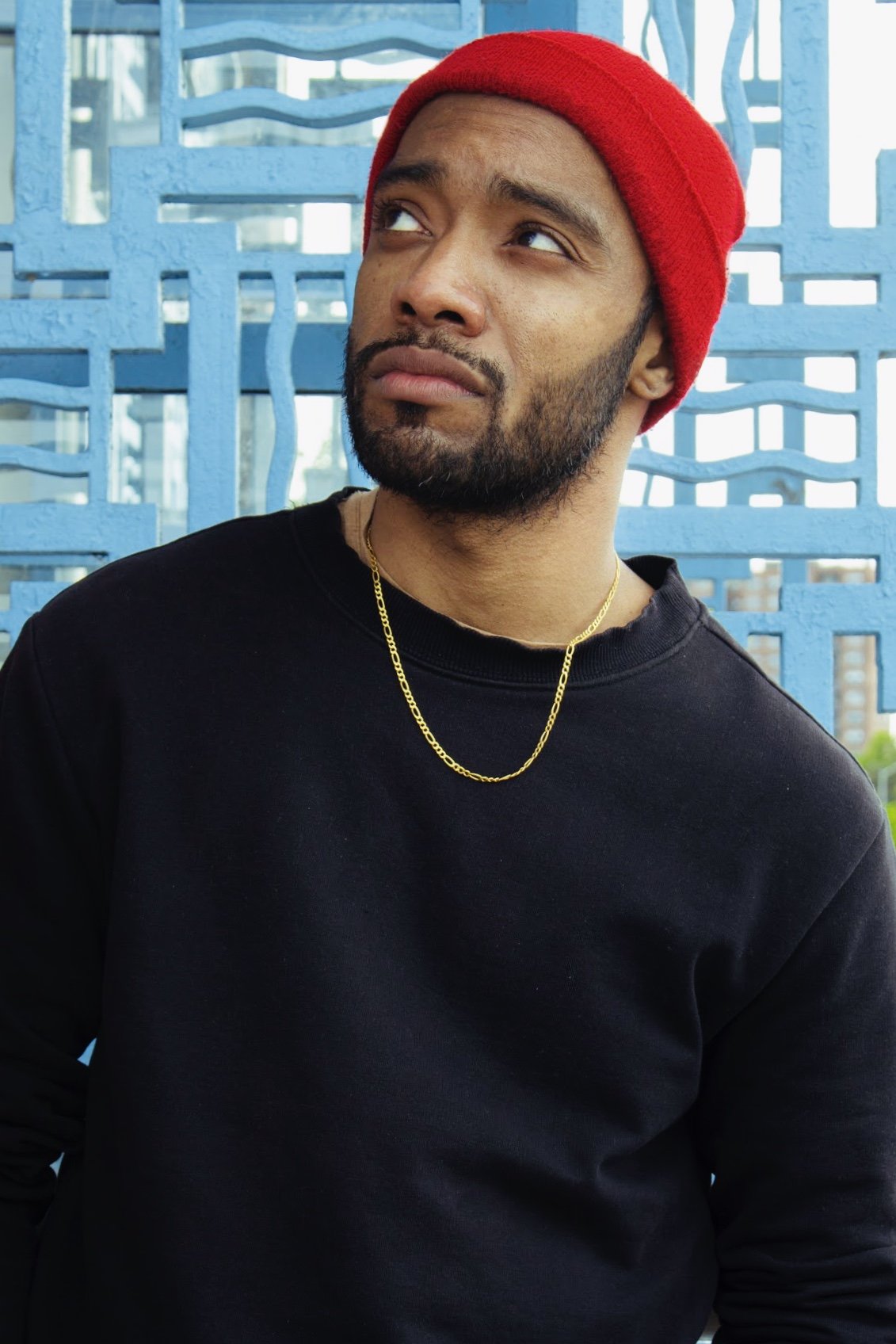There’s a certain sense of timing in being an editor.
The saying goes: ‘if you don’t see the editing, it is good editing.’
If you’ve ever watched something and were jarred by a sense of timing, or thrown off for a second, or just simply noticed something looked ‘wonky’, then you’ve probably watched bad editing. Bad editing can ruin a film. But good editing can save a film.
Besides the director, the editor is the storyteller.
My spouse once saw footage of a short film I was editing and was horrified at what he saw. Then, at the final product, he said the film was unrecognizable from what it had started out as. Editing can cover a lot of bad things, including bad performances.
I first started editing when I was sitting around with too much time on my hands backstage in a Broadway show. As fellow cast members were playing video games, or watching Netflix, I decided to learn a new skill (yeah, I’m one of those guys). As many baby editors begin, I started fiddling around with iMovie, the training wheels of editing software. When you finish your first editing project (probably some form of photos you’ve linked together with music), you think you’re a magician. Of course, that was 14 years ago and now in the age of Tik-Tok, complete boobs can edit videos together (no offense to boobs).
Editing Tik-Toks are not the same thing as telling stories. And that’s what I like to do best.
When I decided I wanted to do this ‘for real,’ I started putting myself out there to do some edit-projects people needed (like actors’ reels). Soon, a buddy of mine who did wedding photography asked me if I wanted to film and edit together a wedding video. My fee was dirt cheap. And the engaged couple didn’t want to spend much on a wedding video. But after a couple of mind-numbing experiences watching endless footage of drunk people slopping themselves around on the dance floor, I decided, even by charging higher fees, wedding videography wasn’t for me.
At some point, I realized the rudimentary built-in transitions and graphics of iMovie screamed amateur. You can spot a video edited on iMovie from a mile away. The next obvious step was the grown-up version of iMovie - Final Cut Pro X. While this sufficed for a while, it had the same “sameness” that iMovie had, just in fancier formats. I should just say it wasn’t for me. There are FCPX’ers out there who love their software and do amazing things with it. Instead, I took a rather big leap over to Adobe’s editing software. It’s a fairly big learning curve, but it makes sense to me and allows for greater flexibility and nuance.
As I was editing more and more, a buddy of mine, who came from the headshot photographer world, was transitioning into cinematography. A few friends were getting together to shoot a short film (mainly so they could get on-camera footage for acting). So I agreed to edit it together for free, to learn. And I did learn a lot, made a lot of mistakes, and I loved it. From there, the entry into film work was born. Word spread and more and more work came to me. And the true fact was: I was good at it. I attribute this to the fact that I came from an acting background. I have an innate sense of timing and storytelling that adds to my skillset as an editor.
Honing editing techniques is never-ending. It’s like reaching a plateau on a mountain only to find there’s another higher mountain to climb.
After 14 years, I know a lot. And yet I’ll see what some editors do and am in awe.
It seems like with every editing project (especially films), there is a new hurdle or a new thing that I’ve never done before, and I teach myself (there’s a YouTube tutorial on just about anything you need to learn). Those are all new skills in your toolbox. I do edit commercials and corporate videos as well (there’s good money there), but it’s not the thing I love most.
When I started out, I’d proudly send a client my final project. And sometimes I got pages of notes back. It was hard not to take it personally. You make all these artistic choices, and then you feel like they are criticizing your work.
Maybe that’s the artist in me. I know in the corporate world, going back to the drawing board on a project is normal.
Just like I did with acting, I had to develop a thick skin.
They aren’t criticizing my work. They have a vision, and they’ve hired me to make it happen, even if it’s not what I, myself, would do. The absolute best feeling is when I edit something together, and the director loves it, and only wants to build off of what I’ve already done. It feels like real collaboration. I will insert my opinion when needed. They can take it or leave it. The absolute worst is when a client insists on dictating every little thing until I basically become a button-pusher. There is no artistry in that. When I feel like my voice isn’t heard, I’ll shut down, and deliver the product as requested, even if I think it’s crap.
For Greg’s ACTUAL price list, please contact him through his website here.
With any small-business owner, finding your price point is not easy. Especially because your services are not a physical ‘widget’ that you can set the price of, and people can buy it or not. With editing, you are really selling your labor costs. Early on, I’d have a needy client that demanded going over and over a project. And I realized that my already meager fee had reduced to nothing as the labor hours dragged on with the umpteenth cut. You learn to set an editing threshold. You can offer a certain amount of cuts for the fee you’ve agreed on. And then after that threshold, you can offer a set fee for additional cuts, or go hourly. Hourly is more beneficial to the client, because you can usually accomplish quite a few secondary notes in an hour. The “per cut” fee, of course, benefits you because you might have half an hour of fixes, but you’ve charged for an entire new cut. Either way, it’s remarkable how quickly a client will be finished with a project if they know every cut will cost them more money. It’s better that it comes out of their pocket, rather than out of yours by endlessly working on it for a picky client.
If you are a beginning editor, over time, you’ll get comfortable raising your rates. But make sure you are ready to deliver on that rate. There have been a few times I’ve overshot with my price, and the potential client passed.
That’s business.
I never went to film school. I was self-taught. It was a slow road. I’m a fast learner, and even then, it’s not easy. You must have patience, be in it for the long haul, and really love it. As I said, there’s always something new, even for veteran editors. Film school is great for teaching you terminology and what buttons to push. But the finesse of storytelling (even for commercials) is learned by doing. Just like pretty much every other facet of the film industry, you can only learn so much from books.
Editing actually is a honed skill. I look at things I did 10 years ago, and I cringe. I’ve come a long way. But the road ahead will always contain more exciting challenges. If I’m lucky.
Greg Roderick
has been a resident of New York City for over 30 years. He has appeared on Broadway, and films, and currently works as a director of film & theatre, producer, actor, singer, and editor.
G&E In Motion does not necessarily agree with the opinions of our guest bloggers. That would be boring and counterproductive. We have simply found the author’s thoughts to be interesting, intelligent, unique, insightful, and/or important. We may not agree on the words but we surely agree on their right to express them and proudly present this platform as a means to do so.




























